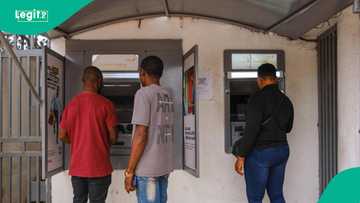Nigerian Insurance Act: Public Building Owners Face Fines, Jail Time for Non-Compliance
- The recently approved Nigerian Insurance Industry Reform Act mandates that all public buildings, including tenement houses, hostels, and buildings accessible to the general public, be insured against various risks like fire, flood, and collapse
- Non-compliance with the law can result in fines of up to N1 million, a 12-month jail sentence, or both, with the National Insurance Commission having the authority to seal off buildings posing serious risks
- The Act also stipulates insurance requirements for gas and petroleum stations and outlines penalties for insurers who fail to meet payment obligations for the Fire Services Maintenance Fund
Legit.ng journalist Zainab Iwayemi has 5-year-experience covering the Economy, Technology, and Capital Market.
As per the recently approved Nigerian Insurance Industry Reform Act, public building owners and operators risk a fine of N1 million, a 12-month jail sentence, or both if they do not insure their premises against potential hazards.

Source: Getty Images
The PUNCH referenced a copy of the new law, which mandates that all public buildings be insured against potential risks like collapse, fire, earthquake, storm, flood, and other dangers as determined by the National Insurance Commission.
A tenement house with multiple floors, a hostel, a building occupied by a tenant, lodger, or licensee, and any building to which the general public has access for the purpose of receiving medical or educational services, recreation, or business transactions are all considered public buildings under Section 76(6).
Insurance coverage is necessary to cover the legal liability of landlords and occupiers for bodily injury, death, or damage incurred by third parties and users of the premises, in addition to safeguarding lives and property.
A part of the new law stipulates that, "Also, every direct insurer on policies issued under subsection (1) shall pay 0.25 percent of the net premium received quarterly into a Fire Services Maintenance Fund which shall be established, administered, and disbursed by the Commission to provide grants or equipment to institutions engaged in firefighting services.”
“An insurer who defaults in making payments as required under subsection (3) is liable to a penalty of not more than 10 times the amount payable, provided that persistence in non-compliance with the provision shall be grounds for the cancellation of an insurer’s registration. An owner or occupier of premises who contravenes the provision of this section commits an offence and is liable on conviction to a fine of at least N1 million, imprisonment for a term not exceeding 12 months, or both.”
In addition, if no valid insurance coverage is in place, the law gives NAICOM the authority to order the appropriate authorities to seal off any building that poses a serious risk to the public.
Section 77 of the new Act still mandates that all Federal Government assets and employees be insured against any hazards and perils of the kind the Commission deems appropriate.
According to Section 78, all gas and petroleum filling stations and installations must have insurance coverage for third-party losses brought on by unintentional explosions or fires. Additionally, all vehicles that transport gas and petroleum products must be insured against third-party losses brought on by unintentional explosions or fires.
The owner or operator of the relevant refilling station or the owner of the petroleum and gas products in transit is responsible for the coverage. According to the law, the documentation covering the petroleum and gas products in transit must include a copy of the Certificate of Insurance that satisfies the minimum criteria, or it must be prominently displayed at the refilling station.

Source: Getty Images
Additionally, a person who violates the subsections faces a minimum sentence of two years in prison, a fine of at least N1 million, or both upon conviction.
Section 79 (1) dwells on how claims are settled, stating, "Where a house or any other building insured against loss by fire is damaged or destroyed by fire and there is no reasonable ground to suspect that the owner, occupier, or any other person who insured the house or other building is guilty of fraud in respect of the insurance, or of wilfully causing the fire, the insurer who is liable to make good the loss may, on the request of any person entitled or interested in the insured house or building, cause the insurance money payable to be paid out and expended as set out in subsection (2).”
“(2) The insurance money payable under subsection (1) shall be paid out and expended towards rebuilding, reinstating, or repairing the house or any other building so burnt down, damaged, or destroyed by fire, unless (a) the party or parties claiming such insurance money, within 60 days after the claim is agreed, give security to the satisfaction of the insurer that the insurance money will be paid out and expended as stated; or (b) the insurance money is, at the time, settled and disposed of among all the parties entitled as the insurer may determine with the approval of the court on the application of the insurer or any of the interested parties.
“(3) Notwithstanding the provisions of subsection (1), the insured shall have the right to decide whether to reinstate the house or building damaged or destroyed by fire or to pay the insured for the loss suffered but not exceeding the insured sum.”
NAICOM raises insurance capital requirements
Legit.ng reported that the capital requirement for insurance companies in Nigeria has been raised by the National Insurance Commission (NAICOM).
The Nigerian Insurance Industry Reform Act 2025 mandates that life insurance companies have at least N10 billion in capital, while non-life insurers must have a minimum capital base of N15 billion.
The largest boost was given to reinsurance companies, whose capital threshold is now set at N35 billion.
Source: Legit.ng






